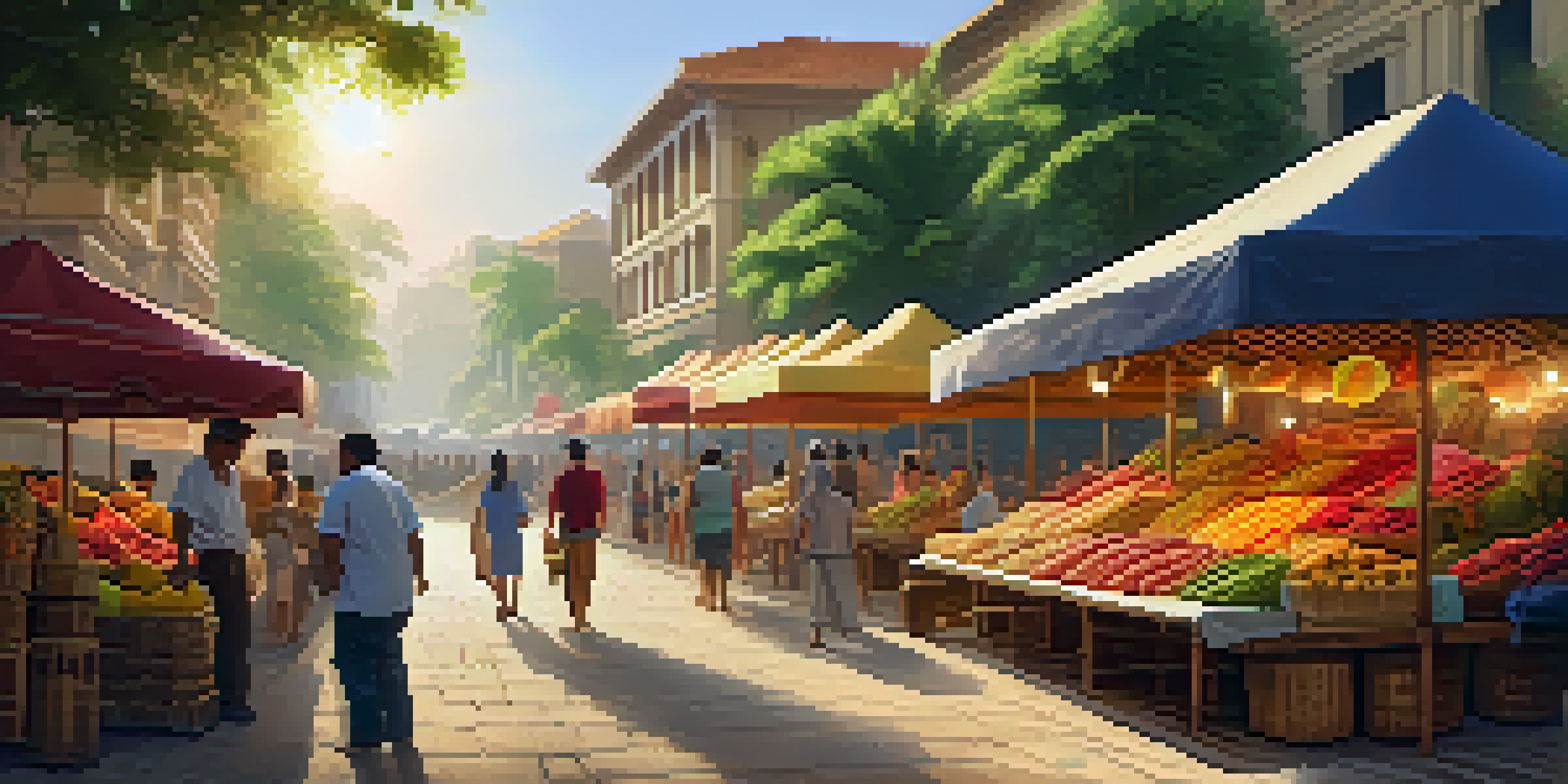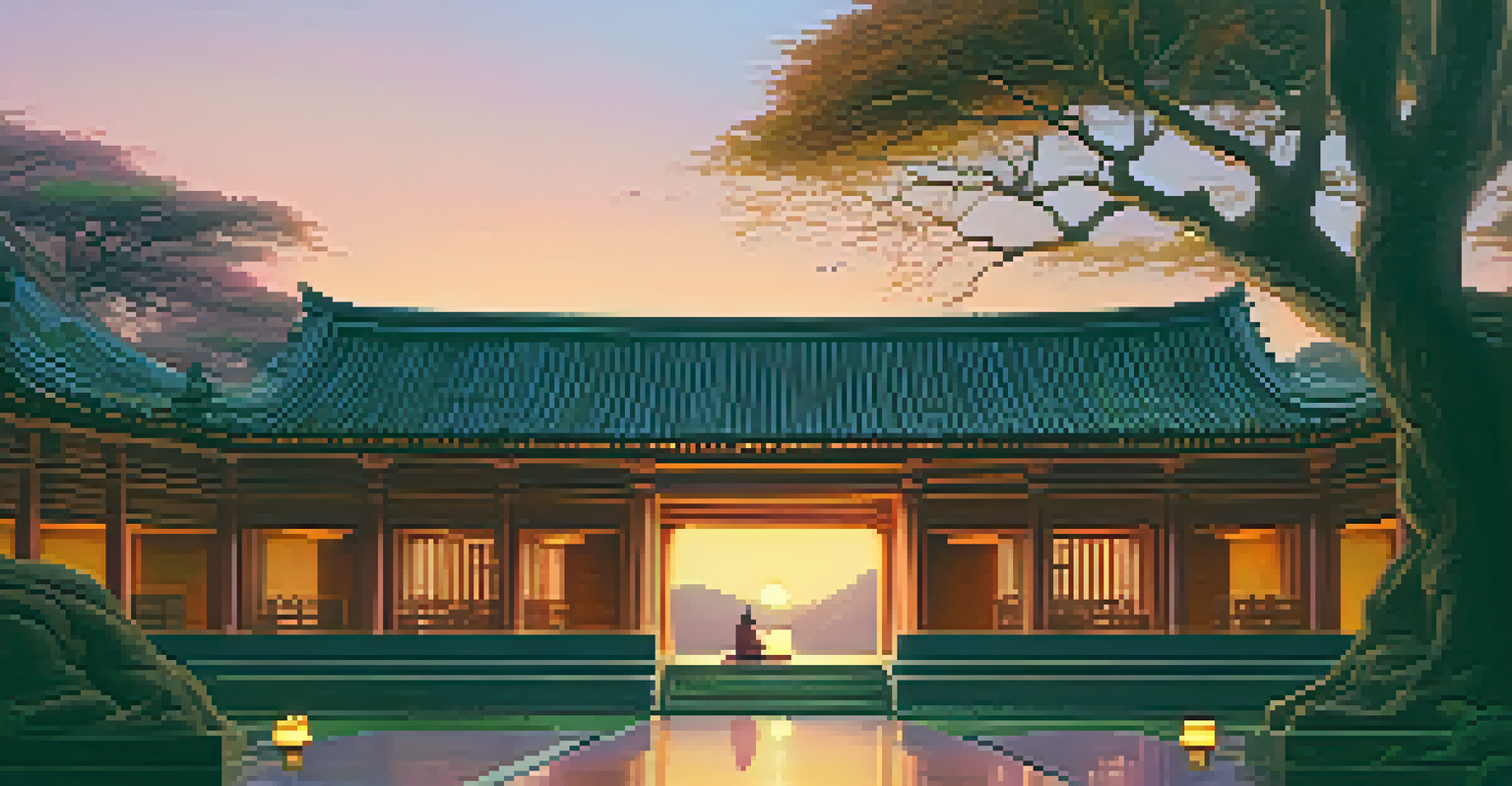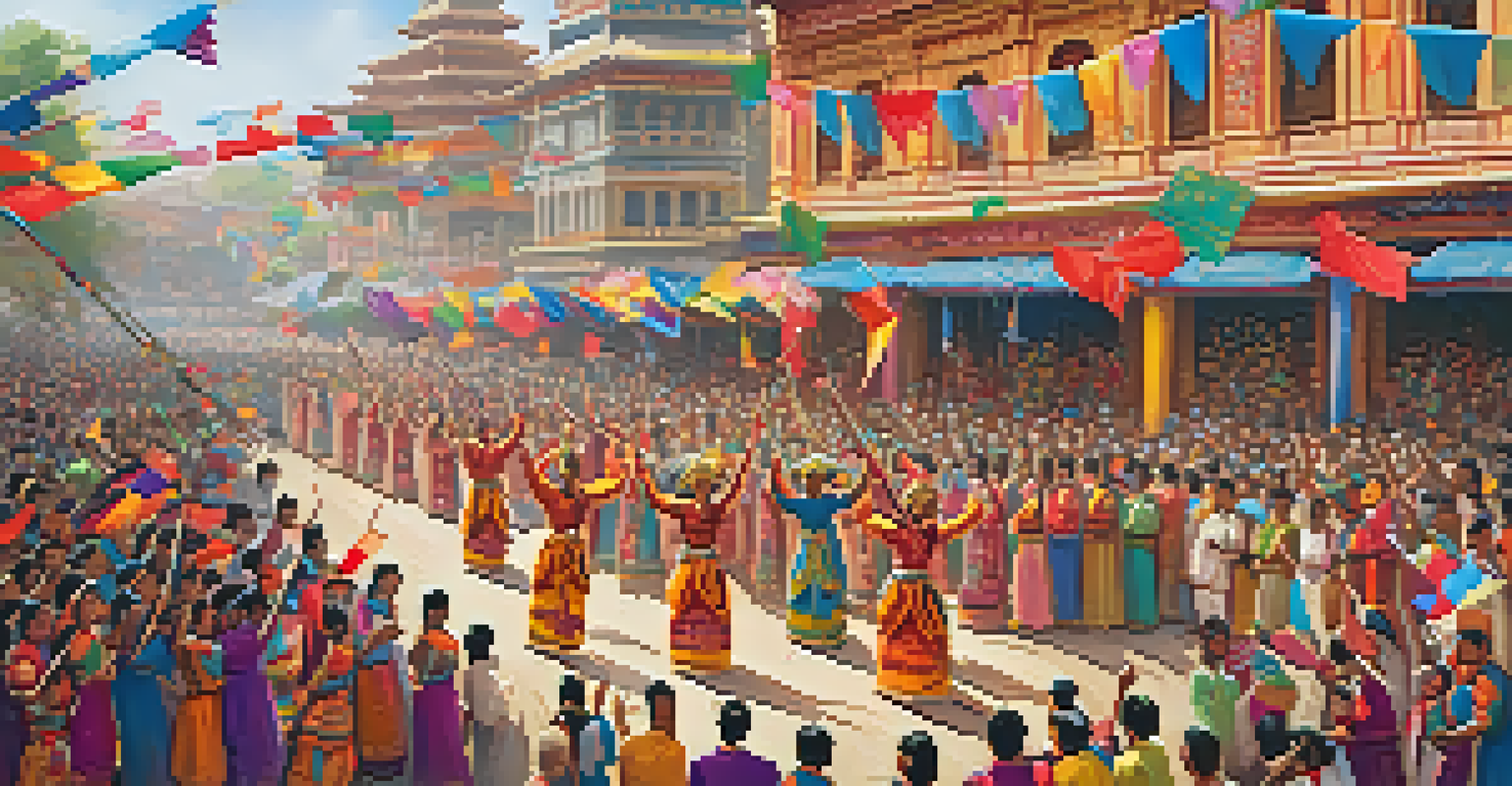The Role of Cultural Experience in Travel Photography Contests

Understanding the Importance of Cultural Context
Cultural context is crucial in photography, especially in travel contests. It adds depth and meaning to images, transforming a simple snapshot into a narrative. When photographers capture local customs or traditions, they help viewers connect emotionally with the place and its people.
Photography is the story I fail to put into words.
For instance, a photograph of a bustling market can evoke the vibrancy of a culture, while an image of a quiet temple might convey a sense of peace. These elements create a story that resonates with judges and audiences alike, highlighting the photographer's understanding of the culture.
By focusing on cultural elements, photographers elevate their work, making it not just about the technical aspects but also about storytelling. This connection is what often sets winning entries apart from the rest.
Cultural Sensitivity in Photography
Cultural sensitivity is essential when participating in travel photography contests. Photographers must approach cultures with respect and awareness, ensuring they do not exploit or misrepresent the subjects. This means taking the time to understand local customs and practices before snapping away.

For example, photographing a religious ceremony requires knowledge of the protocols involved, as making mistakes can lead to disrespect. By being sensitive, photographers not only honor the culture but also create more authentic and compelling images.
Cultural Context Enriches Photography
Understanding cultural context transforms images into narratives that resonate emotionally with viewers.
Judges often appreciate entries that showcase a respectful portrayal of cultural experiences, as it reflects the photographer's integrity and commitment to ethical practices.
The Impact of Local Experiences on Photography
Engaging with local experiences can significantly enhance the quality of travel photography. Participating in local activities or festivals allows photographers to capture genuine moments that reflect the culture's essence. These immersive experiences often lead to unexpected and breathtaking shots.
The best thing about a picture is that it never changes, even when the people in it do.
For instance, joining a traditional dance or cooking class can provide unique perspectives and insights that wouldn’t be available otherwise. These experiences often inspire creativity and can yield compelling narratives that stand out in contests.
Ultimately, the richness of these local interactions can transform an ordinary photo into a captivating story, making it more likely to resonate with judges and viewers alike.
Cultural Diversity in Travel Photography
Cultural diversity plays a pivotal role in travel photography contests, showcasing the beauty of different traditions and lifestyles. Celebrating diversity enriches the visual tapestry of submissions, offering a broader understanding of the world. Photographers who highlight this diversity often capture the judges' attention.
Consider a series of photographs that explore various cultures through their festivals, attire, and daily life. This approach not only informs but also educates viewers, fostering appreciation for different ways of life. It emphasizes the photographer’s ability to see beyond their own experiences.
Respect and Sensitivity Matter
Cultural sensitivity ensures photographers honor local customs, creating authentic and compelling images.
Incorporating diverse cultural elements not only enhances the photographer's portfolio but also contributes to a more inclusive representation of global cultures in the art of photography.
Storytelling Through Cultural Photography
Storytelling is at the heart of cultural photography, providing context and meaning to images. When photographers weave narratives into their work, they invite viewers to explore and understand the culture depicted. Each shot becomes a chapter in a larger story, making the experience more engaging.
For instance, a series of portraits capturing the lives of local artisans can tell a powerful story of craftsmanship and tradition. This storytelling aspect can elevate an entry in a travel photography contest, as it encourages deeper connections with the audience.
Judges often seek submissions that not only showcase technical skill but also evoke emotions and narratives, making storytelling an invaluable tool for photographers.
Technological Advances and Cultural Representation
Technological advances have transformed how photographers capture and represent culture. With tools like drones and smartphones, photographers can explore perspectives and angles that were previously unimaginable. This technology allows for a more dynamic portrayal of cultural experiences.
For example, aerial shots of cultural festivals can showcase the scale and vibrancy of events, while high-resolution images capture intricate details of traditional crafts. These advancements enable photographers to highlight cultural nuances that enhance the viewer's understanding.
Storytelling Elevates Impact
Incorporating storytelling in cultural photography invites deeper audience engagement and enhances contest submissions.
However, it’s important to use technology responsibly, ensuring that it complements the cultural narrative rather than overshadowing it. This balance can lead to stunning entries in photography contests.
The Future of Cultural Photography Contests
As the world becomes more interconnected, the future of cultural photography contests looks promising. Increasing diversity in submissions can lead to richer storytelling and representation, fostering a global appreciation for various cultures. This evolution encourages photographers to explore and showcase cultural experiences innovatively.
Emerging trends suggest a growing emphasis on authenticity and ethical representation in travel photography. Contest organizers are likely to prioritize entries that reflect genuine cultural exchanges, encouraging photographers to engage deeply with the communities they capture.

The future of these contests may also see a fusion of digital and traditional photography, providing new platforms for showcasing cultural narratives. This evolution will undoubtedly inspire photographers to push boundaries and redefine cultural representation in their work.